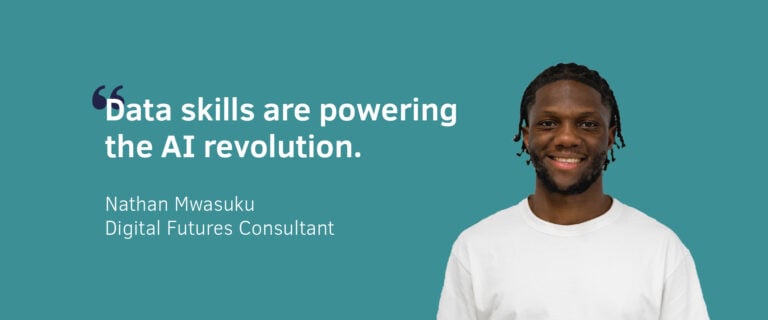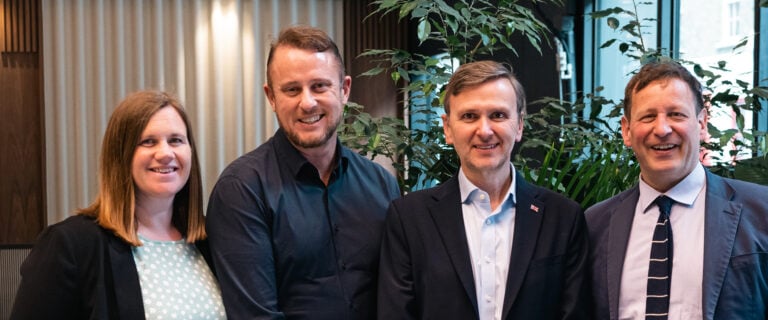
AI is reshaping the workforce but not replacing it. This article outlines the crucial part you can play as a Digital Futures consultant, equipped with the human skills to lead, adapt, and harness the transformative power of AI.
The rapid rise of artificial intelligence has sparked understandable concerns about the future of work. One of the most frequently voiced fears is that AI will replace human jobs at an unprecedented scale and indeed, forecasts suggest that 92 million roles could be displaced by 2030, with entry-level roles feared to be most at-risk.
But there’s another side to the story, and it’s one of opportunity. AI is also projected to generate 170 million new jobs by the end of the decade, resulting in a net gain of 78 million roles equivalent to 14% of today’s global workforce.
“AI will displace 92 million jobs but create 170 million new ones by 2030. The future belongs to those prepared to lead the transformation.”
— Vala Afshar, ZDNET, 2025
At Digital Futures we believe that there is an unprecedented opportunity to thrive in this new AI-driven landscape.
Fundamentally, driving AI transformation requires more than just technical knowledge. It demands human intelligence: ethical and strategical reasoning, critical thinking, problem-solving and emotional insight to enable and shape the responsible and effective use of AI.
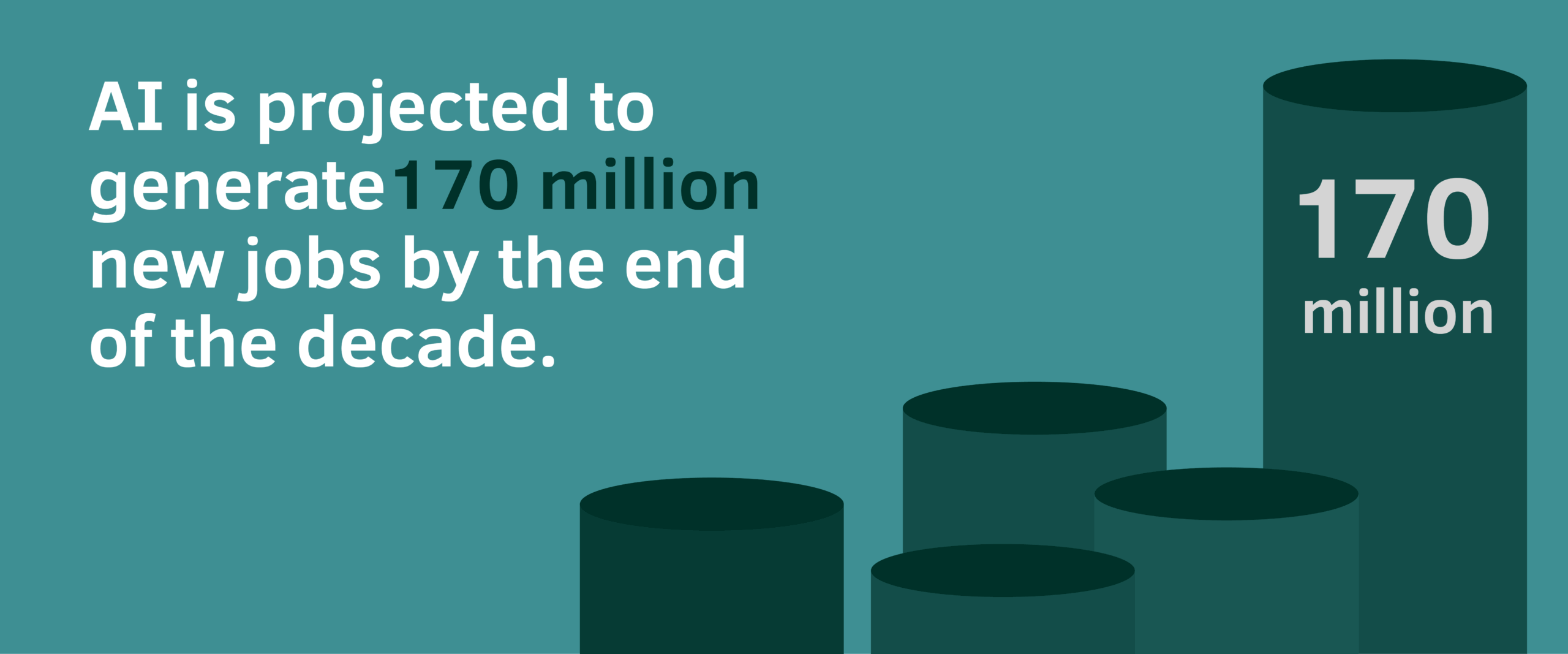
According to the World Economic Forum (WEF), by 2030, 39% of core job skills are expected to change, largely driven by advances in technology. While concerns about automation and job loss are widespread, this narrative often misses a crucial point: AI isn’t simply replacing roles; it’s transforming the nature of work.
Companies are adapting: 50% are reorganising workflows to integrate new technologies, while 66% plan to hire for AI-specific roles, even as 40% anticipate reductions in other areas due to automation.
AI’s true potential, however, hinges on human intelligence. New roles such as AI Storytellers, Generative AI Educators, AI Prompt Engineers, and Human-AI Collaboration Facilitators underscore how creativity, emotional intelligence, and strategic insight remain essential. Additionally, specialists like AI Behaviour Analysts, AI Consultants, and AI Model Trainers fill roles that machines alone cannot.
Joe Atkinson, Global Chief AI Officer at PwC, sums it up:
“In contrast to worries that AI could cause sharp reductions in the number of jobs available, this year’s findings show jobs are growing in virtually every type of AI-exposed occupation, including highly automatable ones. AI is amplifying and democratising expertise.”
This evolving landscape is not about competition with machines, but about human and AI collaboration, a future where your unique skills are more important than ever.
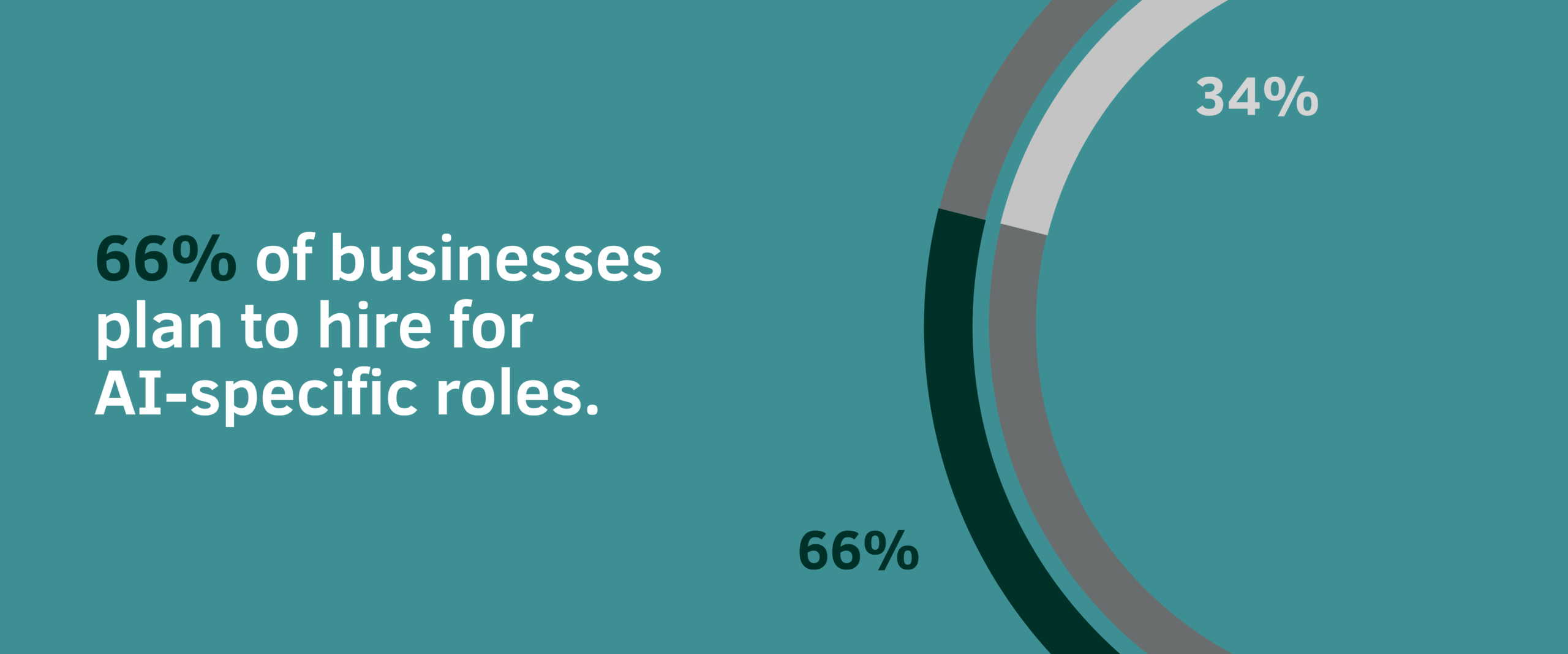
AI is changing the way we work but it’s not replacing us. It’s elevating the need for human judgement. While AI excels at analysing data and automating routine tasks, it lacks the critical thinking, ethical reasoning, and creative problem-solving that only humans can offer. As automation becomes more widespread, those human skills are becoming more, not less important.
“AI is not replacing human judgement; it’s elevating the demand for it. Critical thinking, ethical reasoning, strategic vision, and complex problem-solving aren’t just nice to have; they’re becoming central to how industries implement AI responsibly and effectively.”
– Adapted from insights by PwC and AI workforce experts, 2025
At Digital Futures, we don’t train individuals to compete with AI. We train them to become the human advantage equipped with the leadership and technical skills needed to complement AI implementation responsibly and successfully.
Here are four indispensable human skills you need to develop or look for in the AI-powered workforce:
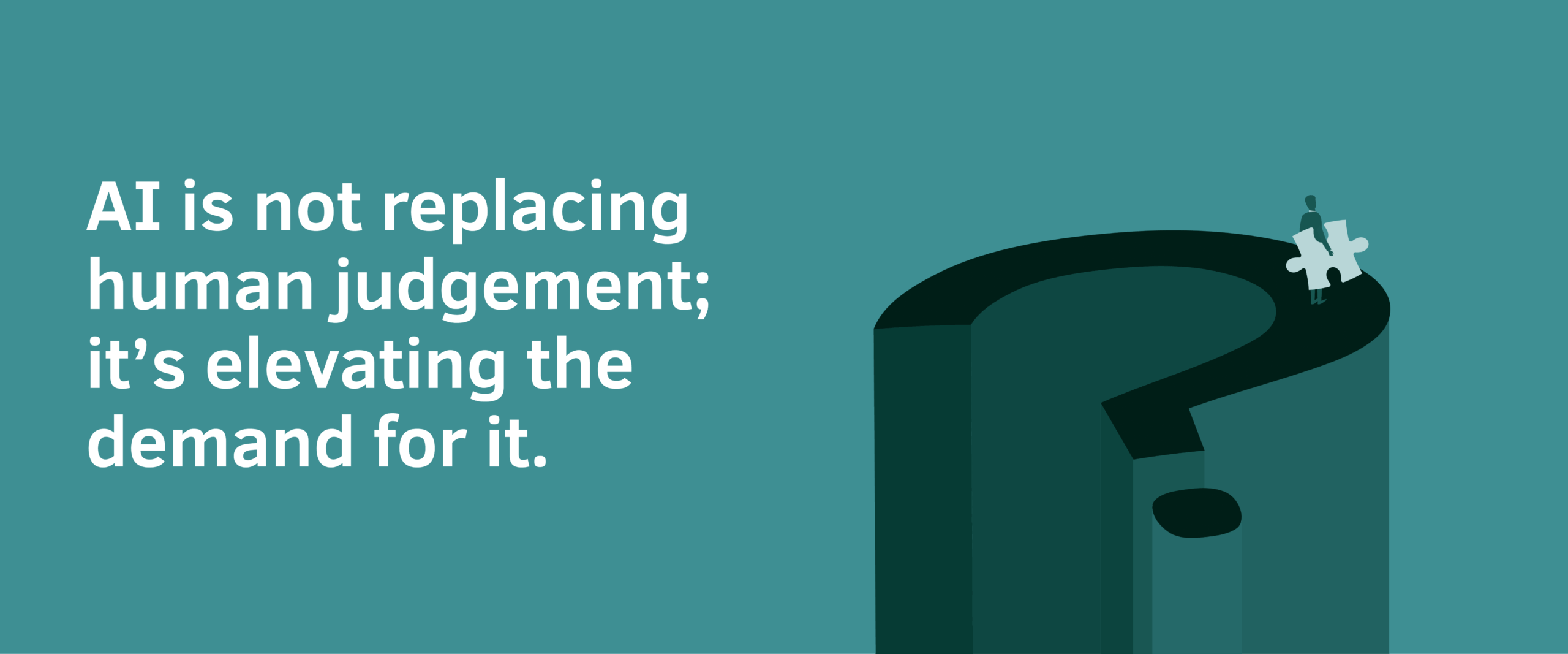
At Digital Futures, we believe the future of work isn’t about competing with AI, it’s about collaborating with it. And that takes human skill, human insight, and human leadership.
The future of work isn’t about choosing between humans and machines; it’s about building a smarter partnership between the two.
As AI reshapes industries, the most successful organisations will be those that combine powerful technologies with strong human values, leadership, and culture. This isn’t just about efficiency, it’s about reimagining how we work, solve problems, and create lasting value.
“We are seeing that the right combination of technology and culture can create dramatic new opportunities to reimagine how organisations work and create value.”
— Carol Stubbings, Global Chief Commercial Officer, PwC
At Digital Futures, we train individuals to become the essential human element that powers successful AI transformation. Our graduates are equipped not only with technical fluency, but with the leadership, ethical reasoning, and strategic skills needed to manage and guide AI responsibly. AI isn’t taking your place. But it is changing the rules and now’s the time to get ahead.
Join Digital Futures and gain the skills that give you the human advantage in an AI-powered world. Lead the transformation and shape the future.



